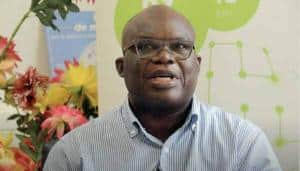
To activate translation, click the “CC” button along the bottom of the video player. Then click the Settings button next to it, select Subtitles/CC, and click on Auto-translate and select the language you want to read captions.
Pour activer la traduction, cliquez sur le bouton “CC” en bas du lecteur vidéo. Cliquez ensuite sur le bouton Paramètres à côté, sélectionnez Sous-titres / CC, puis cliquez sur Traduction automatique et sélectionnez la langue que vous souhaitez lire les sous-titres.
This communication is the result of a collective reflection on the commons undertaken by AFD, the” Land and Development “Technical Committee (CTFD) of French cooperation, and the CIRAD Green team. This work demonstrated that the approach by the commons of the land and the resources it carries are particularly promising when conflicts of interest oppose local populations to foreign investors, when companies are particularly exposed to the consequences of climate change, or when vulnerable populations or territories are neglected The work carried out shows that the commons cannot be reduced to traditional closed communities and based on dimensions such as belonging, identity or heritage. It was based on “making common” in modern society, and open to carry political visions based on a desirable territorial future. The commons then determine the conditions for “living together” based on the economic, social, cultural, and environmental challenges of the territory in which they are located. They can be weakened by an overly centralizing public administration or by market logics based on minimum costs without taking into account social and environmental consequences or exclusive monopolies of resources. Identifying, protecting, making resilient the commons of the earth and the resources it carries, even promoting their emergence, thus requires a change of paradigm and posture. This is what this work has proposed to analyze by highlighting recommendations to people and institutions who wish to promote social and ecological justice in the territories where they operate. It is therefore a communication at the interface of academic work and public policy dialogue.
Cette communication résulte d’une réflexion collective sur les communs engagée par l’AFD, le Comité technique « Foncier et Développement » (CTFD) de la coopération française et l’équipe Green du CIRAD. Ce travail a démontré que l’approche par les communs de la terre et des ressources qu’elle porte est particulièrement porteuse lorsque des conflits d’intérêts opposent les populations locales aux investisseurs étrangers, lorsque les sociétés sont particulièrement exposées aux conséquences du changement climatique, ou lorsque les populations ou territoires vulnérables sont délaissés. Le travail mené montre que les communs ne peuvent être réduits aux communautés traditionnelles fermées et basées sur des dimensions telles que l’appartenance, l’identité ou l’héritage. Il s’est basé sur le « faire commun » dans une société moderne et ouverte pour porter des visions politiques basées sur un avenir territorial souhaitable. Les communs déterminent alors les conditions du « vivre ensemble » à partir des enjeux économiques, sociaux, culturels et environnementaux du territoire dans lesquels ils s’inscrivent. Ces communs sont néanmoins vulnérables. Ils peuvent être fragilisés par une administration publique trop centralisatrice ou par des logiques de marché fondées sur des coûts minimum sans prise en compte des conséquences sociales et environnementales ou des accaparements exclusifs de ressources. Repérer, protéger, rendre résilients les communs de la terre et des ressources qu’elle porte, voire favoriser leur émergence, nécessitent ainsi un changement de paradigme et de posture. C’est ce que ce travail a proposé d’analyser en mettant en évidence des recommandations aux personnes et aux institutions qui souhaitent promouvoir la justice sociale et écologique sur les territoires où elles interviennent. Il s’agit donc d’une communication à l’interface du travail académique et du dialogue de politique publique.